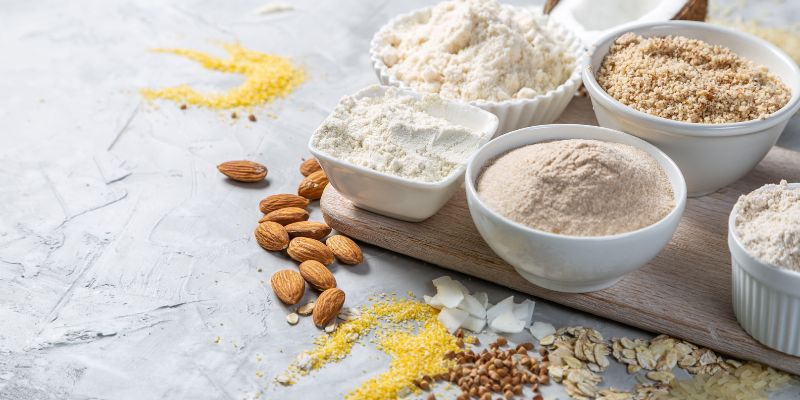Living with Ulcerative Colitis: Simple and Effective Methods for Relief
Globally, many suffer from ulcerative colitis, a chronic bowel ailment inducing colon and rectal inflammation and ulcers, worsening pain, diarrhea, and fatigue. Controlling it is vital for a better life. While incurable, simple yet effective methods exist to reduce flare-ups and relieve symptoms.
Patients can better control their illness by following specific lifestyle modifications, diets, and medication therapies. This guide offers useful advice on enhancing comfort, easing symptoms, and preserving general well-being for those living with ulcerative colitis.

Understanding Ulcerative Colitis and Its Symptoms
Ulcerative colitis is an inflammatory bowel disease (IBD) that causes colon lining inflammation. Usually, it causes symptoms including weight loss, nausea, stomach pain, and tiredness. Bloody diarrhea is another. Individual differences abound in the degree of symptoms; some people may go through protracted periods of remission between flare-ups.
Though an ulcerative colitis cure is unknown, there are strategies to control symptoms and manage the illness. One should realize that ulcerative colitis is a lifetime disorder. Although it can be erratic, flare-ups can be minimized with a proper control strategy. Patients must carefully collaborate with their doctors to track and modify their treatment.
Simple Dietary Changes for Ulcerative Colitis Relief
The management of ulcerative colitisbowel disease depends critically on a healthy diet. Smart dietary decisions are essential since some foods can aggravate or ease symptoms. People with ulcerative colitis, for example, may discover that diets high in fiberfruits, vegetables, whole grainscan aggravate flare-ups. Conversely, low-fiber foods may ease discomfort and are simpler to break down.
It's good to have lean proteinssuch as chicken or fishand healthy fatssuch as avocados and olive oil. Keeping hydrated is also important since diarrhea could lead to dehydration. Patients should avoid foods high in caffeine, alcohol, and spices since they could aggravate their digestive tract. A well-planned diet might enhance the management of ulcerative colitis symptoms.
Stress Management and Its Impact on Ulcerative Colitis
Stress is well recognized to aggravate ulcerative colitis bowel disease symptoms. Strong links exist between the gut and brain; emotional stress can cause flare-ups. Learning stress management strategies is essential to reduce its effects on the body.
Deep breathing exercises and mindfulness meditation are among the techniques that could help one relax and lower anxiety. Regular exerciseeven a basic walkcan enhance general mental and physical condition. Managing stress depends on enough sleep since sleep deprivation aggravates symptoms. To support long-term well-being, patients should concentrate on relaxing and choose activities that assist them in relaxing.
Medications for Managing Ulcerative Colitis Symptoms
Although there is no ulcerative colitis cure, treatment of the disorder depends critically on drugs. To help lower colon inflammation, doctors frequently advise anti-inflammatory medications, including aminosalicylates. Corticosteroids could be advised for more severe cases to help manage flare-ups. Sometimes, immunosuppressive medications assist in regulating the immune reaction causing inflammation.
More recently developed biologic therapy medications target certain immune system components, helping to control symptoms more precisely. Since individual effectiveness differs, patients should cooperate closely with their doctors to identify the appropriate drug schedule. Following recommended treatments helps to prevent flare-ups and lower the need for more involved procedures.
Exercise and Physical Activity for Ulcerative Colitis Patients
Managing ulcerative colitis largely depends on exercise. Regular exercise can boost general energy levels, assist digestion, and lower stress. Maintaining a good weight and supporting gut health depends on staying active even in phases of remission.
Nonetheless, vigorous physical activity is not suitable for flare-ups. One should pay attention to the body and modify training plans depending on energy level. Light exercises like walking or stretching are often more appropriate during flare-ups. See a healthcare professional to ascertain a suitable degree of activity for your illness.
A Natural Way to Support Gut Health: Probiotics
Live bacteria called probiotics could help gut health, particularly for patients with ulcerative colitis. They support digestion and the immune system and help balance the gut flora. Certain studies indicate that probiotics might help persons with IBDincluding ulcerative colitishave better symptoms and less inflammation.
A good gut can be supported by probiotic supplements or meals high in probiotics, such as yogurt, kefir, and sauerkraut. Before beginning any supplement, patients should always see their doctors since not all probiotics fit every person. Managing ulcerative colitis symptoms can depend on the correct strain and dosage.

The Role of Sleep in Managing Ulcerative Colitis
Anyone's health depends on good sleep, but it is especially vital for those with ulcerative colitis and bowel disease. Sleep can aggravate symptoms, raise stress levels, and complicate the body's healing process. To preserve general health, ulcerative colitis patients should try for at least 79 hours of sleep every night.
Patients should design a comfortable sleeping environment, limit caffeine or heavy meals before bed, and establish a calming bedtime routine to help enhance the quality of sleep. Moreover, improving sleep involves cutting screen time before bed and using relaxation strategies. Enough rest lowers the risk of flare-ups and helps boost the immune system.
Avoiding Triggers for Ulcerative Colitis Flare-ups
Every patient having ulcerative colitis has unique triggers that could cause flare-ups. Finding and avoiding these triggers is crucial to stop the aggravation of symptoms. Typical triggers are some foods, stress, smoking, and infections. Keeping a log of food intake and symptoms can help determine probable triggers.
Once these are found, the diet should be free of or limited in these items. Furthermore, avoiding smoking and implementing stress management techniques can help lower flare-ups. Regularly avoiding recognized triggers can help preserve a better quality of life and lower the frequency of flare-ups.
Conclusion:
Though living with ulcerative colitis bowel disease might be difficult, there are some easy and efficient ways to control symptoms. Patients can raise their quality of life by following a balanced diet, controlling stress, using medications as directed, and keeping up a regular exercise schedule. Though no ulcerative colitis cure exists, these techniques can help promote long-term health, ease flare-ups, and comfort. Working with healthcare professionals helps one develop a customized treatment strategy and maintain consistency in lifestyle modification.












